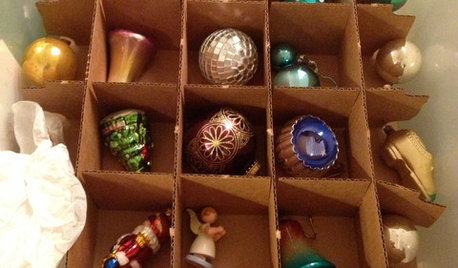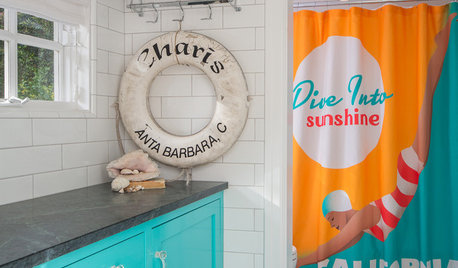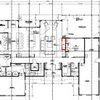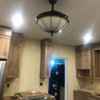need some fuse feedback
msjay2u
15 years ago
Related Stories

HOUZZ TOURSHouzz Tour: Steel Fuses Industrial and Modern in a California Pavilion
Heavy on metal, this two-story addition entertains with a stargazing hot tub, a fire pole and an unusual fire feature
Full Story
DECORATING GUIDESDitch the Rules but Keep Some Tools
Be fearless, but follow some basic decorating strategies to achieve the best results
Full Story
GREEN BUILDINGLet’s Clear Up Some Confusion About Solar Panels
Different panel types do different things. If you want solar energy for your home, get the basics here first
Full Story
REMODELING GUIDESHave a Design Dilemma? Talk Amongst Yourselves
Solve challenges by getting feedback from Houzz’s community of design lovers and professionals. Here’s how
Full Story
WORKING WITH PROSWhat to Know About Concept Design to Get the Landscape You Want
Learn how landscape architects approach the first phase of design — and how to offer feedback for a better result
Full Story
PAINTINGBulletproof Decorating: How to Pick the Right Kind of Paint
Choose a paint with some heft and a little sheen for walls and ceilings with long-lasting good looks. Here are some getting-started tips
Full Story
HOMES AROUND THE WORLDHouzz Tour: An Irish Home With Hamptons Style
This new house exudes character with smart cabinetry, beautiful features and some movie magic
Full Story
HOLIDAYSChristmas Cleanup Tips for the Not Naturally Organized
Dreading the postholiday chores? First let yourself unwind. Then grab some boxes, a few supplies and this easy guide
Full Story
MAN SPACESWhy Men Really Do Need a Cave
Don't dismiss cars, bars and the kegerator — a man space of some kind is important for emotional well-being at home
Full Story
COLORWhy You Should Bring Turquoise Into the Bath
This bright blue-green hue sparkles like the Gulf of Mexico. Here are 11 ways to give your bath some cool aqua culture
Full StorySponsored
Industry Leading Interior Designers & Decorators in Franklin County
More Discussions








regus_patoff
davidandkasie
Related Professionals
Brookline Home Automation & Home Media · Coronado Home Automation & Home Media · Half Moon Bay Home Automation & Home Media · Irvine Home Automation & Home Media · Palo Alto Home Automation & Home Media · Roselle Home Automation & Home Media · Saint Petersburg Home Automation & Home Media · Sarasota Home Automation & Home Media · Washington Home Automation & Home Media · Westminster Home Automation & Home Media · Wilmington Home Automation & Home Media · West University Place Lighting · Sacramento Lighting · Spring Lighting · Fuquay Varina Lightingazlighting
davidandkasie
msjay2uOriginal Author
regus_patoff
davidandkasie
msjay2uOriginal Author
davidandkasie
pjb999